#eichmann
Text
The Jews are coming: series 1 episode 1: Eichmann's execution
#ישראל#ישראלבלר#ישראלים#טמבלר ישראלי#טאמבלר ישראלי#israel#israeli#i stand with israel#pro israel#ישראבלר#עם ישראל חי#ישר#ישרבלר#jewdaism#jewish history#jewish#jewish stuff#jewblr#jew#shoa#eichmann#adolf eichmann
18 notes
·
View notes
Text

«Hemos presenciado actos tan terribles en la Rusia soviética y en la Alemania nazi y también en Chile, Camboya o Ruanda, que no podemos sino ser sensibles al horror de estos actos en sí mismos. Sin duda tiene una gran importancia práctica saber qué clase de hombre puede dar las órdenes que dieron Hitler, Stalin, PoI Pot o Pinochet y en qué consiste la maldad personal de la legión de torturadores que practican su execrable trabajo en la actualidad en numerosos países del mundo, aunque sólo sea para saber cómo podríamos llegar a actuar nosotros mismos como ellos. Pero no necesitamos saber nada de todo eso para calificar las cosas que se hicieron y que todavía se siguen haciendo como absolutamente malas. Llegados a este punto, la insistencia de Nietzsche en una evaluación individualista parece algo simplemente absurdo, como exigir que penetremos hasta el fondo de la psicología de un Mengele o un Eichmann antes de poder evaluar sus acciones.»
Philippa Foot: Bondad natural. Ediciones Paidós, pág. 201. Barcelona, 2002.
TGO
@bocadosdefilosofia
@dias-de-la-ira-1
#philippa foot#friedrich nietzsche#nietzsche#bondad natural#rusia soviética#unión soviética#alemania nazi#chile#camboya#hitler#stalin#pol pot#pinochet#mengele#eichmann#psicología#evaluación invidividualista#ética#moral#ética normativa#ética de las virtudes#filosofía moral#filosofía británica#maldad#maldad personal#acción#acciones#torturadores#teo gómez otero
5 notes
·
View notes
Text
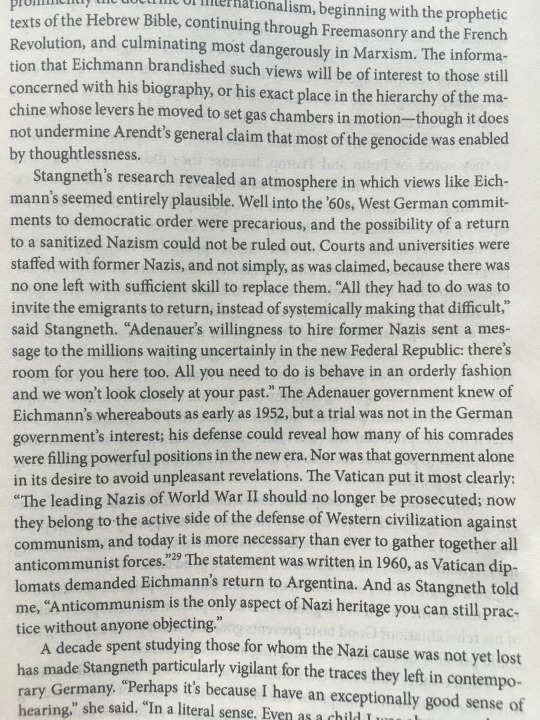
"Adenauer's willingness to hire former Nazis sent a message to the millions waiting uncertainly in the new Federal Republic: there's room for you here too. All you need to do is behave in an orderly fashion and we won't look closely at your past." The Adenauer government knew of Eichmann's whereabouts as early as 1952, but a trial was not in the German government's interest; his defense could reveal how many of his comrades were filling powerful positions in the new era. Nor was that government alone in its desire to avoid unpleasant revelations. The Vatican put it most clearly:
"The leading Nazis of World War II should no longer be prosecuted; now they belong to the active side of the defense of Western civilization against communism, and today it is more necessary than ever to gather together all anticommunist forces."?
2 notes
·
View notes
Text
I Did Not Know
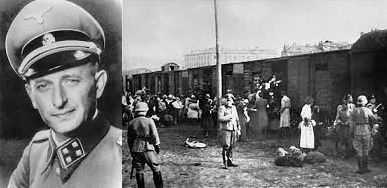
Eichmann once said,
I know not of the dead.
I can't be guilty of any crime.
I'm only a logistics man.
With a detailed plan,
To make trains arrive on time.
#adolf eichmann#republicans#gun violence#gun manufacturers#nra#us politics#holocaust#ulvade#buffalo#parkland#sandy hook#robb elementary#daniel defense#sig sauer#eichmann#netanyahu#israel palestine conflict#al shifa hospital#genocide
4 notes
·
View notes
Text
Leggere l'opera principale della Arendt significa scoprire che siamo tutti un po' Eichmann
2 notes
·
View notes
Text
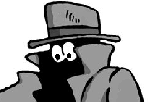
VS Akte Alois Brunner endlich öffentlich
Nach 8 Jahren war der Kampf endlich erfolgreich
Im Jahr 2018 hatte der damalige Präsident des Verfassungsschutzes intern erklärt, dass er das Bundesarchivgesetz ändern lassen wird, wenn er verpflichtet wird, die Akten des VS zum Nazi Alois Brunner herauszugeben. Nun liegt die komplette Akte der taz und fragdenstaat mit 396 Seiten vor.
Zu Alois Brunner schreibt die taz: Alois Brunner war einer der schlimmsten NS-Verbrecher. Der Österreicher und einstige SS-Hauptsturmführer war die rechte Hand des Holocaust-Organisators Adolf Eichmann, er soll an der Ermordung von Zehntausenden Jüd*innen beteiligt gewesen sein – und konnte sich bis zu seinem Tod verstecken.
Und die Akte birgt brisantes: Der Geheimdienst wusste schon ab 1960 über den Verbleib von Brunner Bescheid. Brunner traf noch im Dezember 1959 Eichmann in Kuwait um Waffengeschäfte zu besprechen. Da war auch schon seine Adresse bekannt. Die Akte vermerkt die Straße in der Brunner lebt: die Rue George Haddad.
Auf eine Anfrage der Generalstaatsanwaltschaft Frankfurt/Main im Jahr 1960 antwortete der Verfassungsschutz nur knapp: „Weitere Erkenntnisse“ über eine Tätigkeit Brunners in Damaskus „stehen unter Quellenschutz und können leider nicht mitgeteilt werden“.
So ein Verfassungsschutz gehört aufgelöst!
Mehr dazu bei https://taz.de/Verfassungsschutz-hielt-NS-Akten-zurueck/!5940446/
Kategorie[21]: Unsere Themen in der Presse Short-Link dieser Seite: a-fsa.de/d/3uY
Link zu dieser Seite: https://www.aktion-freiheitstattangst.org/de/articles/8451-20230706-vs-akte-alois-brunner-endlich-oeffentlich.htm
#Rechtsaußen#Neo-Nazis#NSU#Faschisten#Rassismus#Verfassungsschutz#Maaßen#SS-Hauptsturmführer#AloisBrunner#Eichmann
1 note
·
View note
Text
Mia White, juicy black babe with a nice rack and a tight, pink pussy, who is not against to add some pink in sex
DEEP MASSAGE SEX GAY by Nudemassage
foxwoods resort casino ledyard ct
Young latina Gianna Dior eating cum after POV blowjob
Las venezolanas chupan mejor que ninguna
Doggy style yellow bone long stroking pussy
Naked doll amazing fetish bondage sex scenes with elderly man
자위 일본인
Guy teen gay porn Hot new southerner Alex Horler debuts in his very
Wife Erin sucking my Dick
#Caryatis#unmiry#telferage#exploring#kohls#aerial's#tetterwort#vingerhoed#arclength#unpontifically#bio-aeration#inquietly#topau#cinct#mutualism#Eichmann#Renillidae#consumptional#yuto#catechus
0 notes
Photo

livre 10
#Hannah Arendt#Gershom Scholem#correspondance#penser au 20e siècle#écrire#penser après Auschwitz#Eichmann#pillage nazi
0 notes
Text
youtube
Fascination by Leathers - Director: Wayne Moreheart
#music#canadian music#shannon hemmett#leathers#jason corbett#kendall wooding#music video#wayne moreheart#dave mcclung#christian eichmann#artoffact#artoffact records#video#misaki higashibeppu#david goodman#edward mcclung#adam fink#laura may taylor#Youtube
42 notes
·
View notes
Text
Horký úchop: Znalosti moderních dějin by se neměly hodnotit tradičními testy nebo maturitou, nýbrž vysvětlováním textu písně We Didn't Start the Fire od Billyho Joea
29 notes
·
View notes
Text
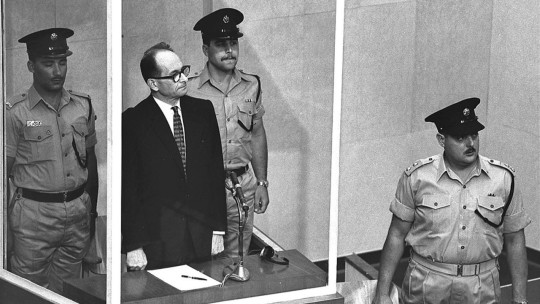
«Durante el interrogatorio policial, cuando Eichmann declaró repentinamente, y con gran énfasis, que siempre había vivido en consonancia con los preceptos morales de Kant, en especial con la definición kantiana del deber, dio un primer indicio de que tenía una vaga noción de que en aquel asunto había algo más que la simple cuestión del soldado que cumple órdenes claramente criminales, tanto en su naturaleza como por la intención con que son dadas. Esta afirmación resultaba simplemente indignante, y también incomprensible, ya que la filosofía moral de Kant está tan estrechamente unida a la facultad humana de juzgar que elimina en absoluto la obediencia ciega. El policía que interrogó a Eichmann no le pidió explicaciones, pero el juez Raveh, impulsado por la curiosidad o bien por la indignación ante el hecho de que Eichmann se atreviera a invocar a Kant para justificar sus crímenes, decidió interrogar al acusado sobre este punto. Ante la general sorpresa, Eichmann dio una definición aproximadamente correcta del imperativo categórico: “Con mis palabras acerca de Kant quise decir que el principio de mi voluntad debe ser tal que pueda devenir el principio de las leyes generales” (lo cual no es de aplicar al robo y al asesinato, por ejemplo, debido a que el ladrón y el asesino no pueden desear vivir bajo un sistema jurídico que otorgue a los demás el derecho de robarles y asesinarles a ellos). A otras preguntas, Eichmann contestó añadiendo que había leído la Crítica de la razón práctica. Después explicó que desde el momento en que recibió el encargo de llevar a la práctica la Solución Final, había dejado de vivir en consonancia con los principios kantianos, que se había dado cuenta de ello, y que se había consolado pensando que había dejado de ser “dueño de sus propios actos” y que él no podía “cambiar nada”.»
Hannah Arendt: Eichmann en Jersusalén. Debolsillo, págs. 199-200. Barcelona, 2014
TGO
@bocadosdefilosofia
@dies-irae-1
#hanna arendt#eichmann en jersualén#adolf eichmann#eichmann#solución final#kant#immanuel kant#imperativo categórico#imperativo categórico formal único#teoría ética#teoría ética kantiana#ética kantiana#crítica de la razón práctica#principio de universalización#nazismo#legalidad#juicio#banalidad del mal#principios kantianos#holocausto#teo gómez otero#genocidio#filósofa
5 notes
·
View notes
Text
convincing the graduate chair that it’s fine to give me an extra month to study for my comprehensive exams by giving me the comps list early by explaining that there’s no way in hell im studying with any of the other phd students in my cohort
#the moment I discovered the phrase little eichmanns it permanently etched itself into my vocabulary#because that’s what all of them are#they’re all fucking rich white progressive racist types who think they’re above reading theory. fucking ghoulish human beings#and I know they’re gonna beg me to give them all my notes and teach them how to read marx#because that’s what they’ve been doing all semester#you’re a PhD social science student the fact that you don’t like theory isn’t my problem! Drop out if it’s that hard#go work at your dad’s firm or whatever
48 notes
·
View notes
Text
“This, in a real sense, was my generation’s reaction to the Holocaust: a fearlessness born of the certainty it would never happen to us. We would be strong and self-reliant; if we went, it would be the opposite of passively. Indeed, a case can be made that we became too free of fear. Few outsiders have a full understanding of how much, even today, Israeli policy remains a visceral reaction to the specter of our loved ones being herded into the ovens.”
—Peter Z. Malkin, Eichmann In My Hands
#everyone should read this book#israel#jumblr#am yisrael chai#jewish#adolf eichmann#operation finale#oscar isaac
25 notes
·
View notes
Text
The SS timeline

1925: The SS is formed, their Reichsfuhrer is Julius Schreck
1926: Julius Schreck left the role, Reichsfuhrer Joseph Berchtold took his place
1927: Joseph Berchtold resigned and Erhard Heide became Reichsfuhrer in his place.
1929: Heinrich Himmler succeeds Heide and is appointed Reichsfuhrer of the SS
1931: Heinrich Himmler gave the order to Reinhard Heydrich to create the SD.
1931: The RuSHA is formed.
1932: The SS already had 52,000 members.
1933: Adolf Hitler became chancellor of Germany
1933: Dachau concentration camp opened.
1933: The ''forced sterilization'' of people suffering from a series of hereditary diseases (or considered as such) begins.
1936: The SS takes control of the Gestapo.
1936: Sachsenhausen concentration camp opens its doors
1938: The Einsatzgruppen are created.
1939: Operation Himmler begins World War II.
1939: the RSHA is established by Reinhard Heydrich.
1940: The Waffen SS are created.
1940: The Auschwitz and Mauthausen concentration camps open their doors. Construction work on Gusen I begins.
1941: Birkenau becomes operational.
1942: Reinhard Heydrich holds the Wannsee Conference, which initiates the so-called ''final solution''.
1942:The first female guards arrived at Auschwitz and Majdanek from Ravensbrück.
1942: The WVHA was founded (it was responsible for managing the finances, supplies and equipment of the SS)
1944: The SS is at the height of its power: of the 1200 prominent personalities of the Third Reich, no fewer than 300 were members of the SS.
1945: Liberation of Auschwitz and other concentration camps.
1945: Heinrich Himmler is removed from office and Karl Hanke takes his place, becoming the last Reichsfuhrer of the SS.
1946: The SS are declared an illegal organization.
Sources:
Wikipedia: The SS
If you don't like it go with your life :))
I DON'T SUPPORT NAZISM, FASCISM OR ZIONISM IN ANY WAY, THIS IS JUST AN EDUCATIONAL POST
#reichblr#austrian painter#heinrich himmler#reinhard heydrich#ww2 germany#the ss#ss#holocaust#auschwitz#adolf eichmann
50 notes
·
View notes
Text
" Nella lettera del 1963 scritta al figlio di Eichmann, dopo il processo e la condanna a morte di suo padre in Israele, Anders, nel tentativo di andare alle radici di quella mostruosità che fu lo sterminio di sei milioni di ebrei, scrive: «L’inadeguatezza del nostro sentire non è un semplice difetto fra i tanti; non è neppure soltanto peggiore del fallimento della nostra immaginazione o della nostra percezione; essa è invece addirittura peggiore delle peggiori cose che sono già accadute; e con questo voglio dire che essa è persino peggiore dei sei milioni [di morti della Shoah]. Perché? Perché è questo fallimento che rende possibile la ripetizione di queste terribilissime cose; ciò che facilita il loro accrescersi; ciò che probabilmente rende addirittura inevitabili questa ripetizione e questo aumento. Infatti a incepparsi non sono solo i sentimenti dell'orrore, della stima o della compassione, bensì anche il sentimento della responsabilità. Per quanto possa sembrare infernale, anche per quest’ultimo valgono le medesime cose che valevano per l’immaginazione e la percezione: esso si fa tanto più debole quanto più aumenta l’effetto a cui miriamo o che abbiamo già raggiunto; diventa cioè uguale a zero. E questo significa che il nostro meccanismo d’inibizione si arresta del tutto non appena si sia superata una certa grandezza massima. E poiché vige questa regola infernale, ora il ‘mostruoso’ ha via libera» [G. Anders, Wir Eichmannsöhne, 1964].
L’esperimento nazista – non per la sua crudeltà, ma per l’irrazionalità che scaturisce dalla perfetta razionalità di un’organizzazione che cresce su se stessa al di fuori di ogni orizzonte di senso, dove, come nel caso di Stangl, “sterminare” assume il semplice significato di “lavorare” – può essere assunto come quell'evento che segna l’atto di nascita dell'età della tecnica. "
Umberto Galimberti, Il libro delle emozioni, Feltrinelli (collana Serie bianca), settembre 2021. [Libro elettronico; corsivi dell’autore]
#Umberto Galimberti#Il libro delle emozioni#filosofia#letture#Adolf Eichmann#Günther Anders#Israele#Shoah#orrore#stima#compassione#responsabilità#immaginazione#percezione#inibizione#irrazionalità#senso#Franz Stangl#età della tecnica#etica#morale#formazione#saggi#intellettuali italiani#leggere#saggistica#libri#citazioni#categorie morali#modernità
23 notes
·
View notes
Photo
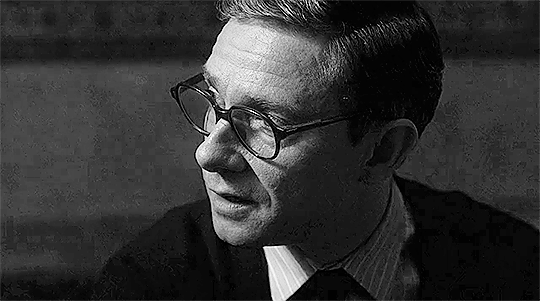

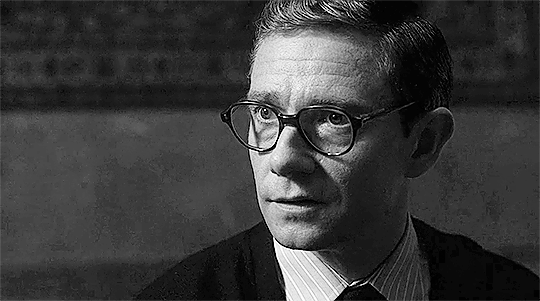

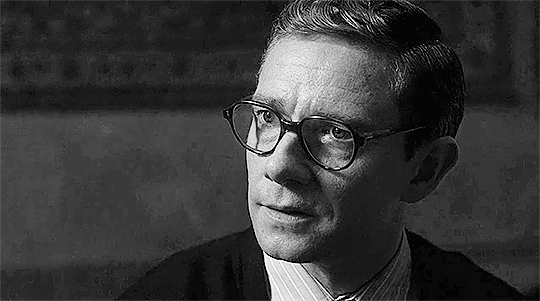

166 notes
·
View notes